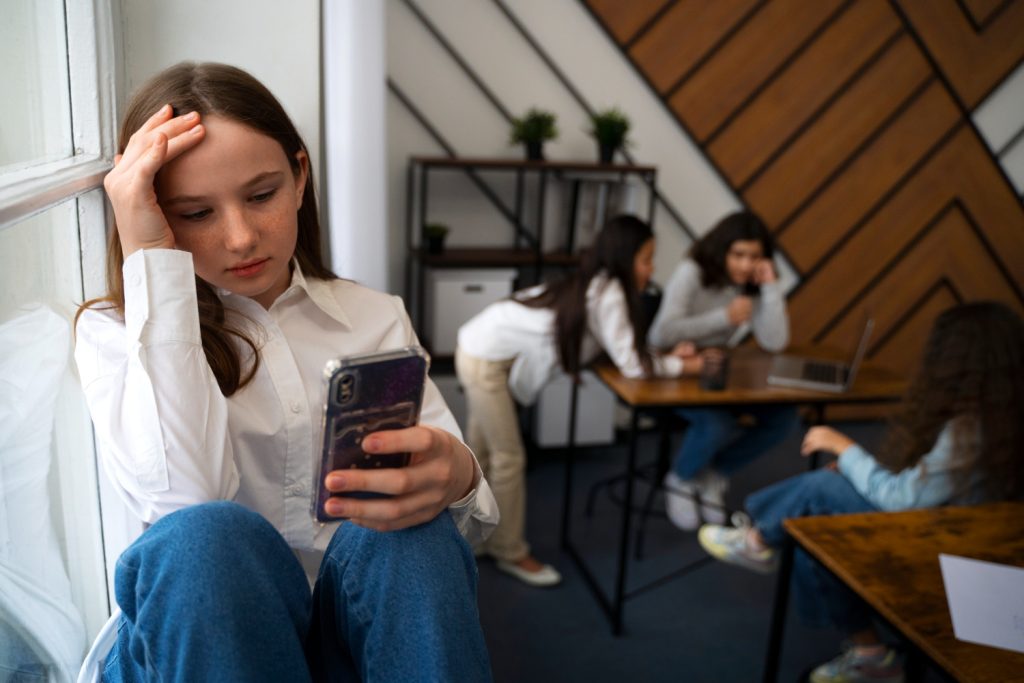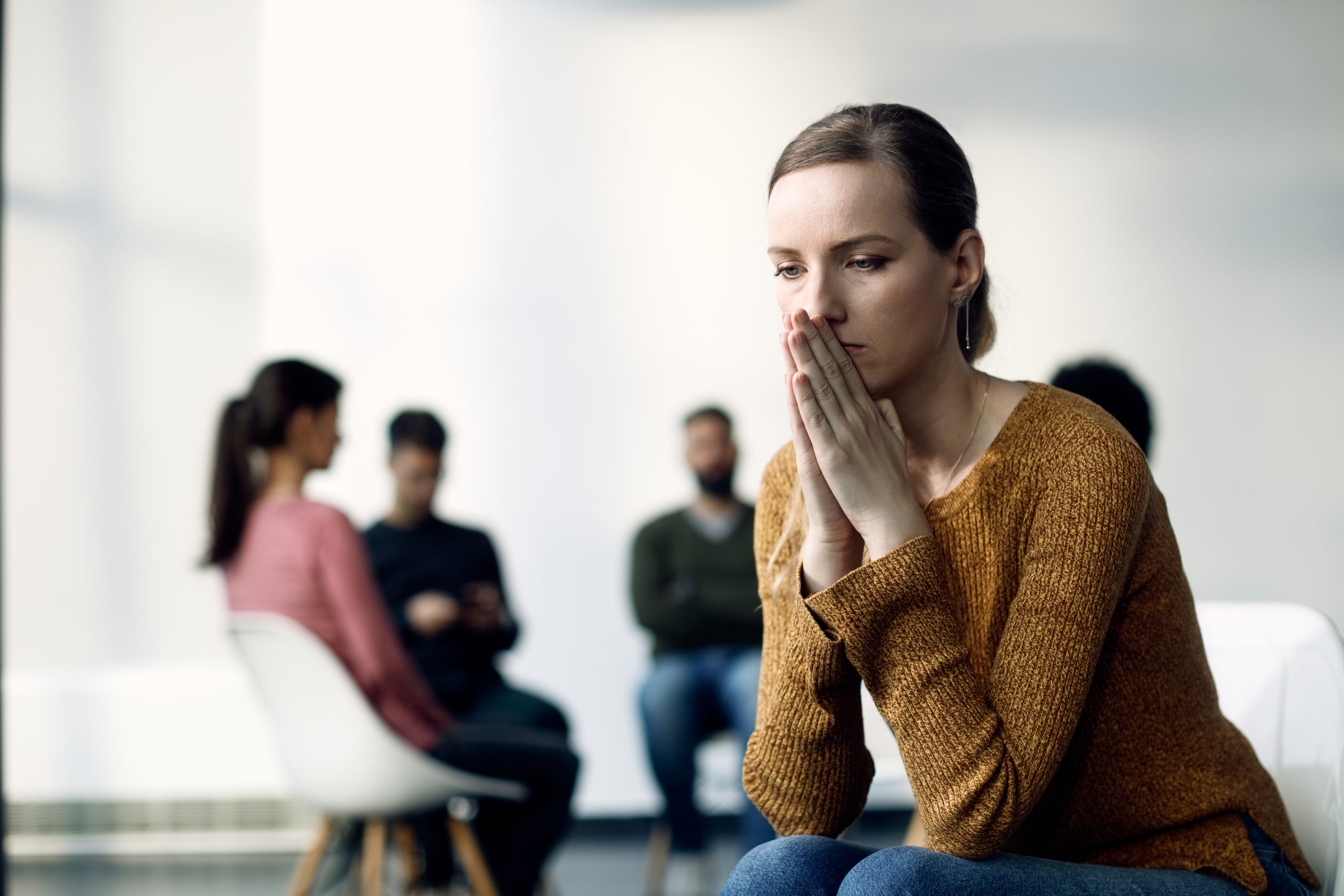Feeling nervous in social situations is part of life, but for people with social anxiety disorder, it goes far beyond ordinary shyness. It’s a persistent, intense fear of being judged, embarrassed, or rejected in social or performance situations. Left untreated, it can limit careers, relationships, and emotional well-being.
At Lifeline Behavioral Health, we want you to know: you’re not alone and healing is possible.
What Is Social Anxiety Disorder?
Social anxiety disorder (sometimes called social phobia) is one of the most common mental health conditions in the U.S., affecting an estimated 7% of the population at any given time. It involves an intense fear of social situations, especially those where a person feels “on display,” such as public speaking, attending a party, or eating in front of others.
Unlike typical nervousness, social anxiety disorder causes people to avoid everyday situations to prevent potential embarrassment or scrutiny. These fears can significantly impact work, school, and personal relationships.
Signs and Symptoms
Social anxiety disorder shows up emotionally, physically, and behaviorally. Common signs include:
- Fear of being judged or humiliated
- Avoiding eye contact, conversations, or group settings
- Rapid heartbeat, blushing, or stomach distress in social situations
- Excessive worry days or weeks before a social event
- Leaving events early or skipping them altogether
Many individuals with social anxiety recognize their fears are irrational, yet still feel powerless to control them.
What Causes Social Anxiety?
Social anxiety doesn’t have a single cause. It typically develops from a combination of biological, psychological, and environmental factors. Genetics can play a role, especially if there’s a family history of anxiety or other mental health conditions.

Brain chemistry may also contribute, particularly when there’s heightened activity in the areas of the brain that regulate fear and threat perception. Past experiences, such as childhood bullying, rejection, or trauma, can increase vulnerability to social fears later in life.
Additionally, temperament matters. Individuals who are naturally shy, withdrawn, or highly sensitive to criticism may be more prone to developing social anxiety. Understanding your personal history and the factors that shaped your social fears can be an important step toward recovery.
How Social Anxiety Affects Daily Life
Living with social anxiety can feel exhausting. It can affect:
- Work and school – Avoiding presentations, meetings, or group work
- Relationships – Difficulty initiating or maintaining friendships
- Self-esteem – Internalizing negative self-beliefs and shame
- Physical health – Chronic stress, muscle tension, and poor sleep
You might turn down job opportunities or isolate yourself from people who care about you,not because you want to, but because anxiety is calling the shots. Fortunately, treatment can help you reclaim your voice and your confidence.
Effective Treatments for Social Anxiety Disorder
Cognitive Behavioral Therapy (CBT)
CBT is the most research-supported therapy for social anxiety. It helps identify and challenge the negative thought patterns that fuel anxious responses. For example, the belief that “everyone will laugh at me” gets replaced with more balanced thinking, like “people might be more understanding than I assume.”
At Lifeline, we integrate CBT with other proven therapies to meet each client’s needs.
Exposure Therapy
Avoidance keeps social anxiety alive. That’s why exposure therapy, gently facing feared situations in small, manageable steps, is a powerful tool for long-term change. You might begin by making eye contact, then progress to ordering food at a restaurant or attending a small gathering. Over time, what once felt unbearable becomes neutral or even enjoyable.
Our clinicians help clients build these “exposure hierarchies” at a pace that feels safe and supportive.
Mind-Body Tools
Because social anxiety affects both mind and body, we often incorporate:
- Breathwork and grounding exercises to ease physical tension
- Mindfulness practices to shift focus from internal judgment to present-moment awareness
- Lifestyle strategies, like improving sleep and reducing caffeine, to support emotional balance
These practices don’t just reduce anxiety in the moment. They build resilience for the future.
Social Anxiety in Adolescents
Social anxiety often begins in childhood or adolescence, with symptoms surfacing around age 13. Teens may avoid speaking up in class, fear being laughed at in group settings, or withdraw from social activities altogether.
Roughly 9% of adolescents in the U.S. experience social anxiety disorder. Early treatment is crucial to prevent long-term impacts on self-esteem, academic performance, and emotional development.
At Lifeline Behavioral Health, we provide specialized care for teens struggling with social anxiety. Our programs help adolescents build confidence, challenge negative thinking, and learn practical tools to manage stress in school, friendships, and beyond.
You Deserve Freedom From Fear
Social anxiety disorder can feel isolating, but it’s also treatable. With the right support, you can challenge the fears that hold you back, step into social situations with more ease, and build meaningful connections.
At Lifeline Behavioral Health, we’re here to walk with you. Whether you’re looking for individual therapy, group support, or a personalized treatment plan, our experienced clinicians are ready to help you thrive.
Let today be the day you take that first brave step. Reach out to schedule a consultation and learn how we can support your healing.


